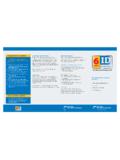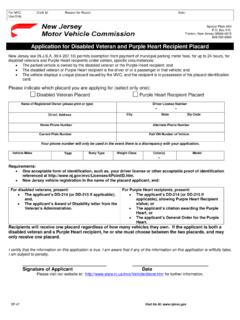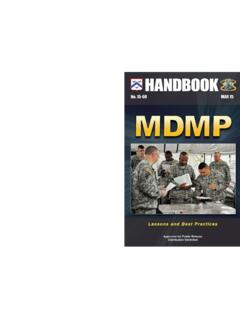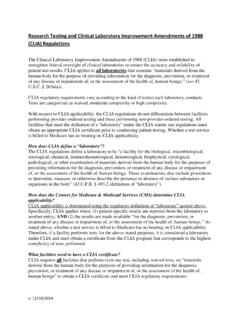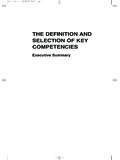Transcription of Initial Rules for the Personal-Use of Cannabis
1 1 summary of the Cannabis Regulatory Commission s Initial Rules for the Personal-Use of Cannabis On Thursday, August 19, 2021, the Cannabis Regulatory Commission (CRC) is scheduled to consider approving the first set of Rules and regulations to establish the Personal-Use , or recreational, Cannabis industry in New Jersey. The Rules , which, under statute, are effective upon filing with the Office of Administrative Law, will be in effect for up to one year and will empower the CRC to begin licensing Cannabis businesses like cultivators, manufacturers, and retailers.
2 Critically, the Rules address the CRC s two core values of equity and safety, facilitate access to the market by small business entrepreneurs, and uphold that municipalities have authority to shape how Cannabis legalization looks on the ground, based on what their community members want. Equity The Initial Rules address social equity by increasing opportunities in the Cannabis industry for people from statutorily designated target communities. The Rules establish three types of Cannabis businesses that will receive priority review and approval in the application process : Social Equity Businesses, which are owned by people who have lived in economically disadvantaged areas of the state or who have past convictions for Cannabis offenses.
3 Diversely Owned Businesses, which are minority-owned, woman-owned, or disabled veteran-owned and certified as such by the New Jersey Department of the Treasury in one or more of the listed categories; and Impact Zone Businesses, which are located in an Impact Zone, owned by people from Impact Zones, or employ residents of Impact Zones. Note: Under the statute, Impact Zones are municipalities with a large population, high unemployment rate, or high numbers of crime or arrests for marijuana. Social Equity Businesses, Diversely Owned Businesses, and Impact Zone businesses will be prioritized in the licensure process so that their applications are reviewed before other applicants regardless of when they apply.
4 The regulations establish guardrails to combat exploitative business contracts and prevent deceptive license ownership transfers. The Rules also provide for the Commission to establish a Social Equity Excise Fee, which is a fee on cultivation that has the potential to increase as consumer prices decrease and will raise money that can be appropriated to initiatives like educational support, economic development, and social support services within municipalities designated as Impact Zones. 2 Safety In addition to laying the foundation for a diverse and inclusive Cannabis industry, the Rules ensure that New Jersey has a safe Cannabis industry that is well-regulated and does not market products to young people under the legal age.
5 The Rules restrict access to Cannabis businesses by those under the age of 21 and restrict advertising so that Cannabis is primarily marketed to those of legal age. Cannabis businesses are required to contain odors and engage with neighbors who may have concerns about their presence, as well as create and implement environmental sustainability plans. To facilitate quick resolution to issues or concerns from the surrounding community, Cannabis businesses will be required to have a staff member who neighbors can call to report any nuisances.
6 Community residents will also be able to report issues directly to the CRC. Inside a Cannabis retail business, personnel will be required to have consumer education materials available for customers, including information on potential side effects of Cannabis use, safe techniques for using Cannabis , and indicators of substance abuse. Products sold in stores will be required to come with warning statements about potential health risks as well as the hotline for accessing poison control centers. The use of cartoons, trademarked images, candy, food, or anything that may be attractive to children is strictly prohibited.
7 The Rules require that packages be childproof both before being opened and when resealed. The only edible Cannabis products permitted are syrups, pills, tablets, capsules, and chewable forms; cookies, brownies, or other edible products resembling food are prohibited. Learning from the vaping crisis in 2019, the manufacturing standards included in the CRC s Initial Rules prohibit the use of any additive that has been determined to be harmful to consumers, and limit what can be added to vape cartridges and other products so that consumers can have confidence in their safety.
8 Easing Access to the Market for Entrepreneurs In an effort to ensure that New Jersey has a competitive, well-regulated market that delivers value and provides a prioritization structure to consumers, the CRC s Initial Rules establish a licensure process in which applications are reviewed as they are received on a continuous rolling-basis, with Social Equity, Impact Zone, and Diversely Owned Businesses always getting priority over others. This new process will ensure that business owners and staff in communities historically underrepresented in regulated Cannabis industries can get timely access to the market, and that it is competition in the active marketplace, not competition in an RFA, that determines the success of awarded applicants.
9 The CRC s licensing process empowers businesses to put their plans to the test and empowers consumers to choose which local entrepreneurs to support and what they want the market to be. Importantly, the Rules establish and prioritize small businesses, referred to as microbusinesses, and the conditional licensure process , which creates a pathway for entrepreneurs into the industry. Conditional applicants will only need to submit background disclosure information to the CRC, along with a business plan and a regulatory compliance plan.
10 If approved, they will then be given 120 days to find an appropriate site, secure municipal approval, and apply for conversion to an annual license. Conditional license-holders that convert to an annual license will not have to submit the sections of the application that, under statute, require applicants to demonstrate past experience in a regulated Cannabis industry. This flexible application process offers a strong opportunity for New Jersey grown businesses to get into this new industry. 3 Microbusinesses, which are limited to 10 employees and premises no larger than 2,500 square feet, will also be prioritized and, if successful, allowed to apply to expand their business in accordance with consumer demand.







